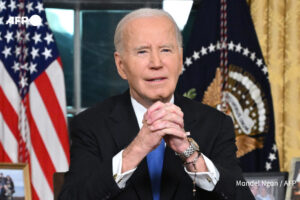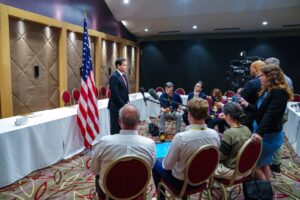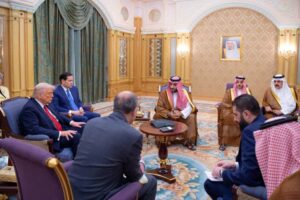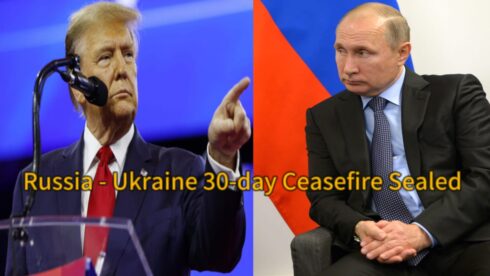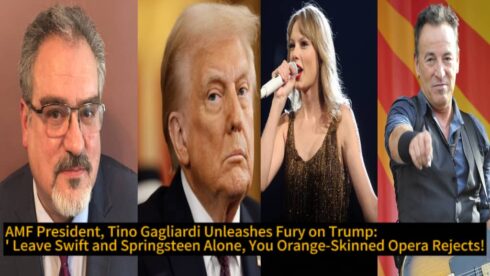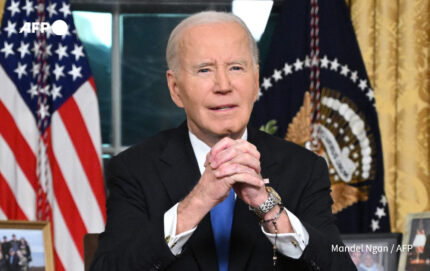U.S. President Donald Trump and Russian President Vladimir Putin engaged in a two-hour phone conversation on March 18, 2025, culminating in an agreement to implement a 30-day ceasefire specifically targeting energy infrastructure in Ukraine. This initiative aims to alleviate the escalating tensions and pave the way for more comprehensive peace negotiations. President Trump characterized the dialogue as “productive,” indicating that both leaders are committed to exploring further elements of a peace agreement.
The ceasefire proposal has received a cautious welcome from Ukrainian President Volodymyr Zelensky, who expressed interest in understanding the specifics of the agreement. Zelensky underscored Ukraine’s support for initiatives leading to a stable and just peace, while also emphasizing the necessity for continued international military assistance to ensure the nation’s security and sovereignty.
Putin’s Conditions and Immediate Actions Post-Call
During the conversation, President Putin outlined specific demands, including the cessation of foreign military aid and intelligence support to Ukraine, as well as a halt to Ukraine’s forced military mobilization. Despite agreeing to the temporary ceasefire, reports indicate that Russia initiated air attacks on Ukraine shortly after the call, raising questions about Moscow’s commitment to the agreement. The Kremlin maintained that any ceasefire must address the underlying causes of the conflict and consider Russia’s security interests.
This sequence of events has led to skepticism among Ukrainians and international observers, with concerns that Russia’s actions may be aimed at weakening Ukraine’s defensive capabilities. European leaders have responded by increasing defense spending and emphasizing the importance of involving Ukraine in any decision-making processes related to ceasefire agreements.
Prisoner Exchange and Prospects for Comprehensive Peace
In addition to the ceasefire agreement, both leaders consented to a prisoner exchange involving 175 soldiers from each side. Russia also agreed to release 23 seriously wounded Ukrainian servicemen. However, the credibility of these commitments has been questioned, as Russia reportedly breached the energy ceasefire shortly after its implementation, with an attack affecting Sloviansk’s energy grid. Ukrainian President Zelensky expressed skepticism regarding Russia’s adherence to the ceasefire, highlighting the need for vigilance in monitoring compliance.
The United States continues to advocate for a full, immediate, and unconditional 30-day ceasefire, a proposal that Ukraine has accepted. However, Russia has yet to confirm its agreement to this broader ceasefire, indicating that further negotiations are necessary to achieve a comprehensive and lasting peace settlement.
Trump-Putin: International Reactions and Strategic Implications
The international community has exhibited a mix of optimism and caution in response to the Trump-Putin call. European nations, particularly Estonia and France, are proactively increasing defense spending in light of the ongoing threat from Russia. Analysts suggest that while the ceasefire targeting energy infrastructure is a positive step, it may be a strategic move by Russia to regroup and strengthen its position, rather than a genuine effort toward peace.
Furthermore, there are concerns that the exclusion of Ukraine from direct negotiations could undermine the nation’s sovereignty and lead to unfavorable outcomes in any peace agreement. The role of the United States in facilitating these discussions is critical, as it must balance diplomatic engagement with Russia while ensuring that Ukraine’s interests are adequately represented.
Economic Considerations and Future Negotiations
The ongoing conflict and the recent ceasefire agreement have significant economic implications, particularly concerning energy infrastructure and regional stability. The destruction of energy facilities has not only affected Ukraine’s economy but also has broader repercussions for European energy markets. The temporary halt in attacks provides an opportunity to assess and potentially reconstruct critical infrastructure, contingent upon the durability of the ceasefire.
Future negotiations are expected to address not only military and political issues but also economic aspects, including sanctions, energy security, and reconstruction efforts. The complexity of these discussions necessitates a coordinated approach involving multiple stakeholders to ensure a sustainable resolution to the conflict.
Trump’s Statement on the Call
Reflecting on the conversation, President Trump stated, “We discussed Ukraine, the Middle East, Energy, Artificial Intelligence, the power of the Dollar, and various other subjects. We agreed to work together, very closely, including visiting each other’s Nations.” He further elaborated on the immediate steps following the call: “We have also agreed to have our respective teams start negotiations immediately, and we will begin by calling President Zelenskyy, of Ukraine, to inform him of the conversation, something which I will be doing right now.”
This statement underscores the multifaceted nature of the discussions and the commitment to initiating immediate negotiations involving all relevant parties. The emphasis on collaboration and direct communication with Ukrainian leadership reflects an effort to maintain transparency and inclusivity in the peace process.




